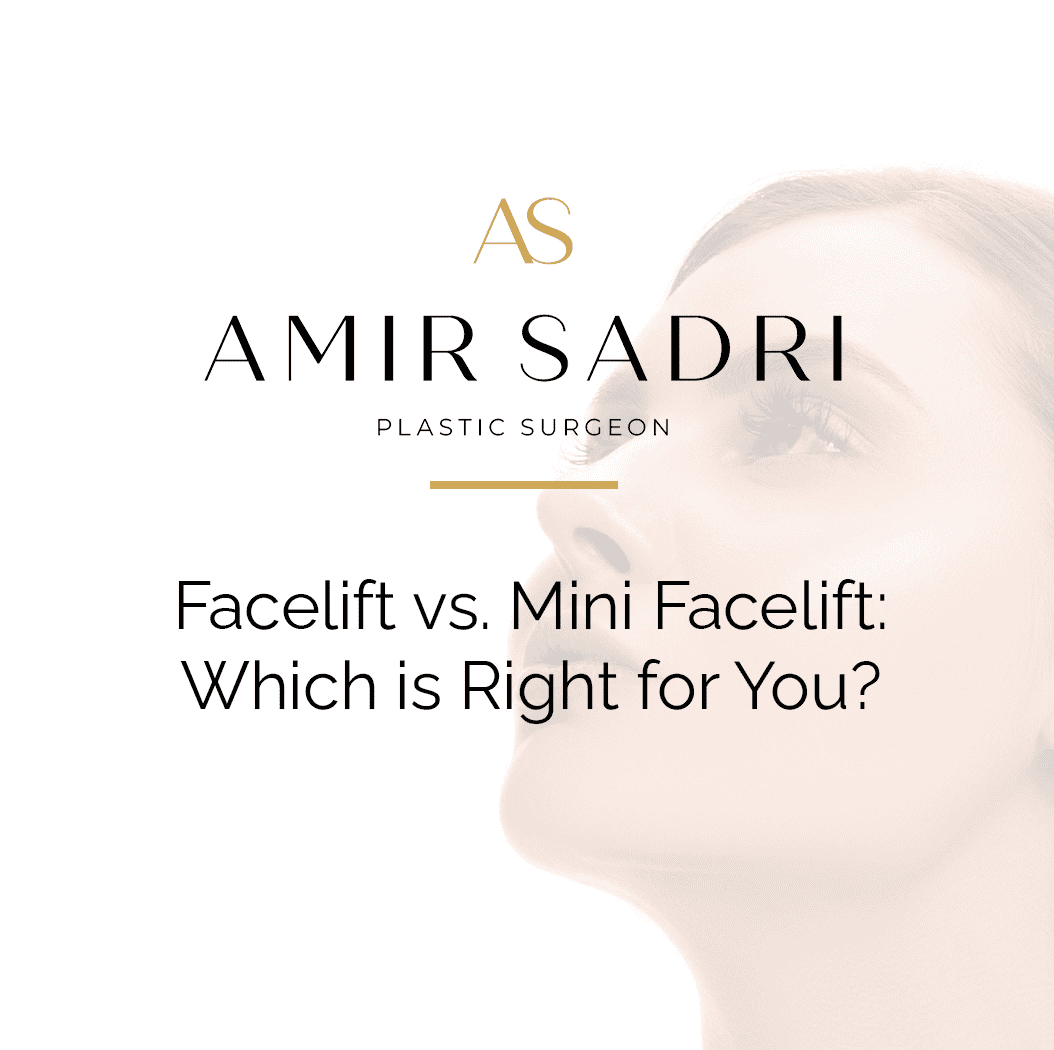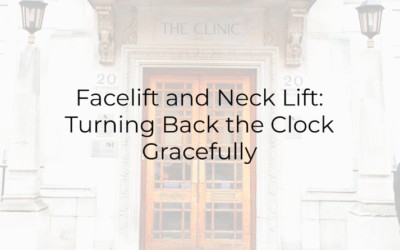As we age, the effects of time, gravity, and sun exposure become more apparent on our faces. Loose skin, deep wrinkles, and loss of volume can all contribute to a tired or aged appearance. For those looking to rejuvenate their look, facelift surgery is a popular and effective option. However, deciding between a full facelift and a mini facelift can be challenging. In this blog, we’ll explore the differences between these two procedures and help you determine which one is right for you.
What is a Facelift?
A facelift, also known as rhytidectomy, is a comprehensive cosmetic surgical procedure designed to address significant signs of aging in the lower two-thirds of the face and neck. This procedure involves tightening the underlying facial muscles, removing excess skin, and repositioning the remaining skin for a smoother, more youthful appearance. A facelift can effectively target deep wrinkles, sagging jowls, and loose neck skin, providing dramatic and long-lasting results.
Benefits of a Full Facelift:
- Comprehensive Rejuvenation: A full facelift addresses multiple areas of the face and neck, making it ideal for those with significant aging concerns.
- Long-Lasting Results: The results of a full facelift can last up to 10-15 years, especially when combined with a healthy lifestyle and good skincare routine.
- Customizable: The procedure can be tailored to your specific needs, addressing everything from deep nasolabial folds to excess neck skin.
Considerations:
- Longer Recovery Time: A full facelift requires a more extended recovery period, usually around 2-3 weeks, with swelling and bruising gradually subsiding.
- More Invasive: The surgery involves more extensive incisions, typically starting at the temples and extending around the ears, which can result in more noticeable scarring, though these are usually well-hidden.
What is a Mini Facelift?
A mini facelift, often referred to as a “weekend facelift,” is a less invasive version of the traditional facelift. This procedure focuses on the lower face, particularly the jawline and neck, and is best suited for individuals with mild to moderate signs of aging. The mini facelift involves shorter incisions, often located around the ears, and less tissue manipulation, resulting in a quicker recovery.
Benefits of a Mini Facelift:
- Shorter Recovery Time: Recovery from a mini facelift is typically quicker, with many patients returning to normal activities within a week.
- Less Invasive: The procedure is less extensive, making it a good option for those who are not ready for a full facelift but want to address early signs of ageing.
- Natural-Looking Results: A mini facelift provides subtle, natural-looking improvements that can enhance your appearance without making you look “overdone.”
Considerations:
- Limited Scope: While effective, a mini facelift doesn’t address more severe signs of ageing, particularly in the mid-face or neck.
- Shorter Longevity: The results of a mini facelift generally last 5-7 years, which is shorter than those of a full facelift.
Which Procedure is Right for You?
Deciding between a full facelift and a mini facelift depends on several factors, including your age, the extent of ageing, and your aesthetic goals. Here’s a quick guide to help you make an informed decision:
- Severity of Aging: If you have significant sagging skin, deep wrinkles, and noticeable jowls, a full facelift may be the better option to achieve the desired level of rejuvenation. On the other hand, if you have mild to moderate sagging, particularly around the jawline and neck, a mini facelift can provide the enhancement you need without the commitment of a full facelift.
- Age: Typically, individuals in their late 40s to 60s are good candidates for a full facelift, while those in their late 30s to 50s might benefit more from a mini facelift. However, age is just a number—your surgeon will assess your skin’s elasticity, overall health, and specific concerns to determine the best approach.
- Desired Results: If you’re looking for a dramatic transformation that addresses multiple areas of the face and neck, a full facelift will likely be more appropriate. Conversely, if you prefer a subtler improvement that refreshes your appearance without a major change, a mini facelift may be the way to go.
- Recovery Time: Consider how much downtime you can realistically accommodate. A full facelift requires a longer recovery period, while a mini facelift offers quicker healing, making it easier to fit into a busy lifestyle.
- Budget: Since a full facelift is more extensive, it typically costs more than a mini facelift. If budget is a significant consideration, a mini facelift might be a more affordable option while still delivering noticeable results.
The Importance of Consultation
Whether you’re leaning towards a full facelift or a mini facelift, the most crucial step is to schedule a consultation with a board-certified plastic surgeon. During this consultation, your surgeon will evaluate your facial structure, skin condition, and aesthetic goals to recommend the best procedure for you. They’ll also discuss the potential risks, benefits, and what you can expect during recovery, ensuring you have all the information needed to make an informed decision.
Conclusion
Both the full facelift and the mini facelift offer effective solutions for those seeking to combat the signs of ageing and restore a youthful appearance. The choice between the two depends on your unique needs, goals, and lifestyle. By consulting with an experienced plastic surgeon like Dr. Amir Sadri, you can confidently choose the procedure that will help you achieve the most natural and satisfying results.




